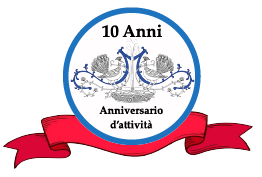Further to Act No. 6/’ 14, which addresses the issue on the “Land of Fires”, a specific norm was introduced viz. Norm 256 bis T.U.A. 156/’ 06 – which prescribes illegal burning of waste, as an offence. However useful it may appear, it does have significant limitations. In fact, this offence presents visible “technical flaws” (which have been clearly singled out by a report from the Italian Court of Cassation No.III/02/2014 of 17.02.2014). In addition, incorrect conducts relating to the phenomenon of small fires in the countryside, the illegal disposing of waste (usually by small industrial-and-craft industry) are now punishable by law, but donot take into account the complex reality of the situation. In fact, many ‘fires’ of various kinds, are not always attributable to this phenomenon and are not necessarily harmful to the environment.
In fact, policy-makers have forgotten that with illegal combustion, there are other types of combustion that should be considered as legitimate, because they have an obvious practical role in protecting the environment. In this way, without making any distinction amongst various types of burning practices, the rule has led to a somewhat paradox in agronomic practices, that have long contributed in preserving the eco system for thousands of years, to now be made punishable. The superficiality of the legislator, has determined the need to formulate multiple regulations – which when read, do highlight the apparent irrationality of the passed Act – which had to clarify on how these practices are vital not only in quickly eliminating agricultural residues but also in protecting the bacterial balance of the soil.
The haste with which these interventions have been carried out, points out too another aspect. Indeed, further limitations in the normative was not to intervene on investigating and supervising instruments regarding waste management, but rather focus on behaviors that arise “upstream” and”downstream” in illegal conduct (that is, on the one hand, that of the person that violates like managers of enterprise that could be held responsible and, on the other hand, combustion).
The normative does not intervene on the “intermediate” phase of waste management that falls in between designated time-lapses. It is as though, with the standard rule introduced in the vast territory affected by this phenomenon, unlawful conduct is now acceptable- by some magic wand. In practice, as the legislation was presented, it seemed as though that once a fire had been spotted, one immediately was allowed to identify its author. In fact, we have completely forgotten that the first aspect addressed, related to the control of waste management, an extremely difficult issue.
In fact, it is remarkable to see the amount of waste handled daily by a multiplicity of legal and illegal operators. In addition, “legal practitioners” do not always adhere to the SISTRA *(art 11 101/d.lvo ‘ 13), which is not mandatory for everyone but only for those who produce or handle dangerous waste “). This makes it difficult for the effective traceability, and disposing of non-hazardous waste in real time. . In brief: the law has made punishable ancient farming practices in the environment and has failed to provide adequate supervisory and investigating tools to prevent harmful combustion; The authors of “fires, can be punished, even though it is still a headsore trying to track them down. Perhaps, it would be preferable using the tools to bringing out into the open operators on illegal payroll and making their subscription to SISTRA compulsory.
Despite the often rushed in law. it has certainly been a useful law enforcement able to identify the author of such conduct. However, the incident is emblematic to what can happen when a matter has been left unsettled for a long time and then is dealt with urgently in the wake of an emotional boost and the media: an approach that may lose sight both of the real dimensions of the problem and the correct solution to be taken to address it.
It may be a trivial reminder but the law aims in “regulating” misconduct that actually occurs around us. To do this, it is important to be well-informed on the matter that the objectives to be pursued are clearly set out, and to be fully aware of all the consequences, even indirect, triggered off by the law. In the case of this recent provision, all this seems not to have taken place. It would be advisable to avoid it in future.
Translation provided by Marina Stronati










